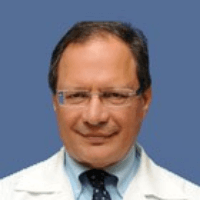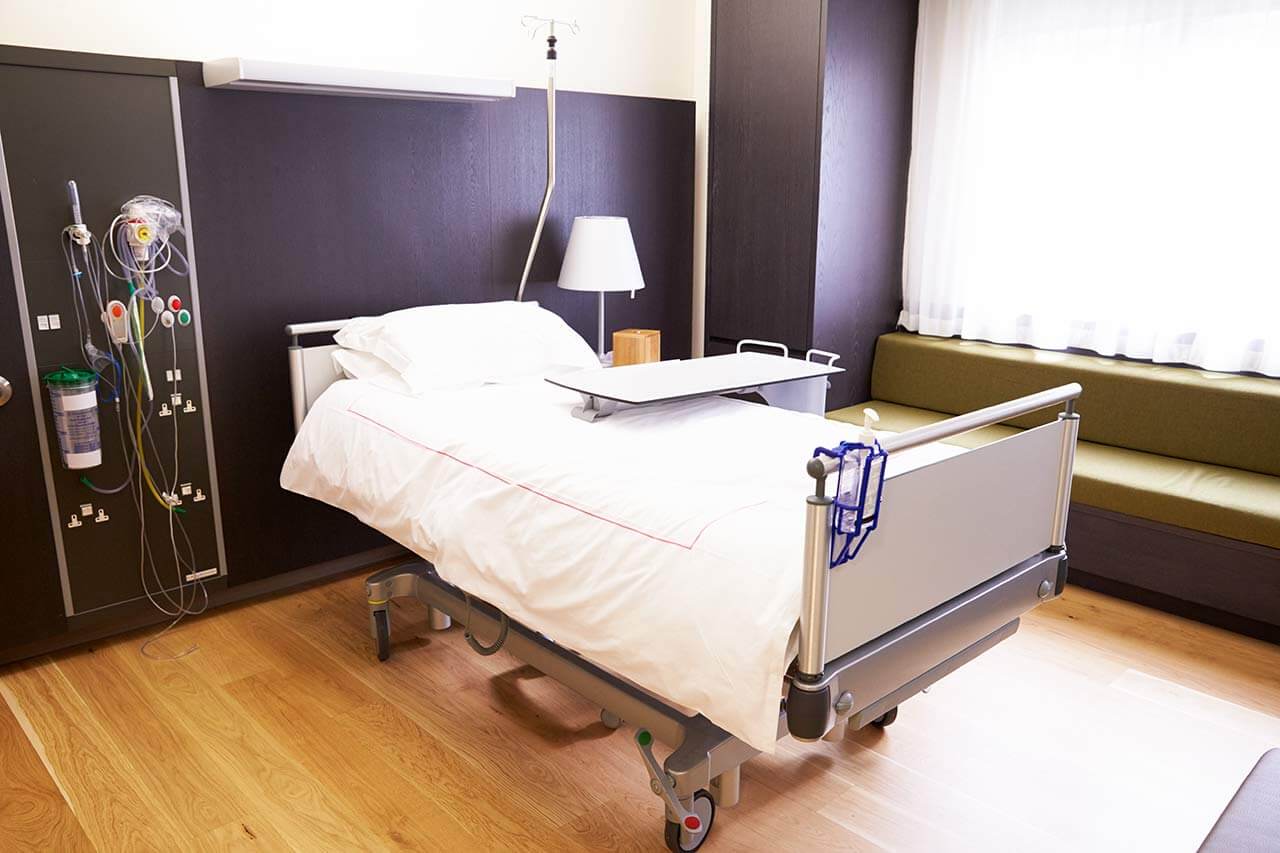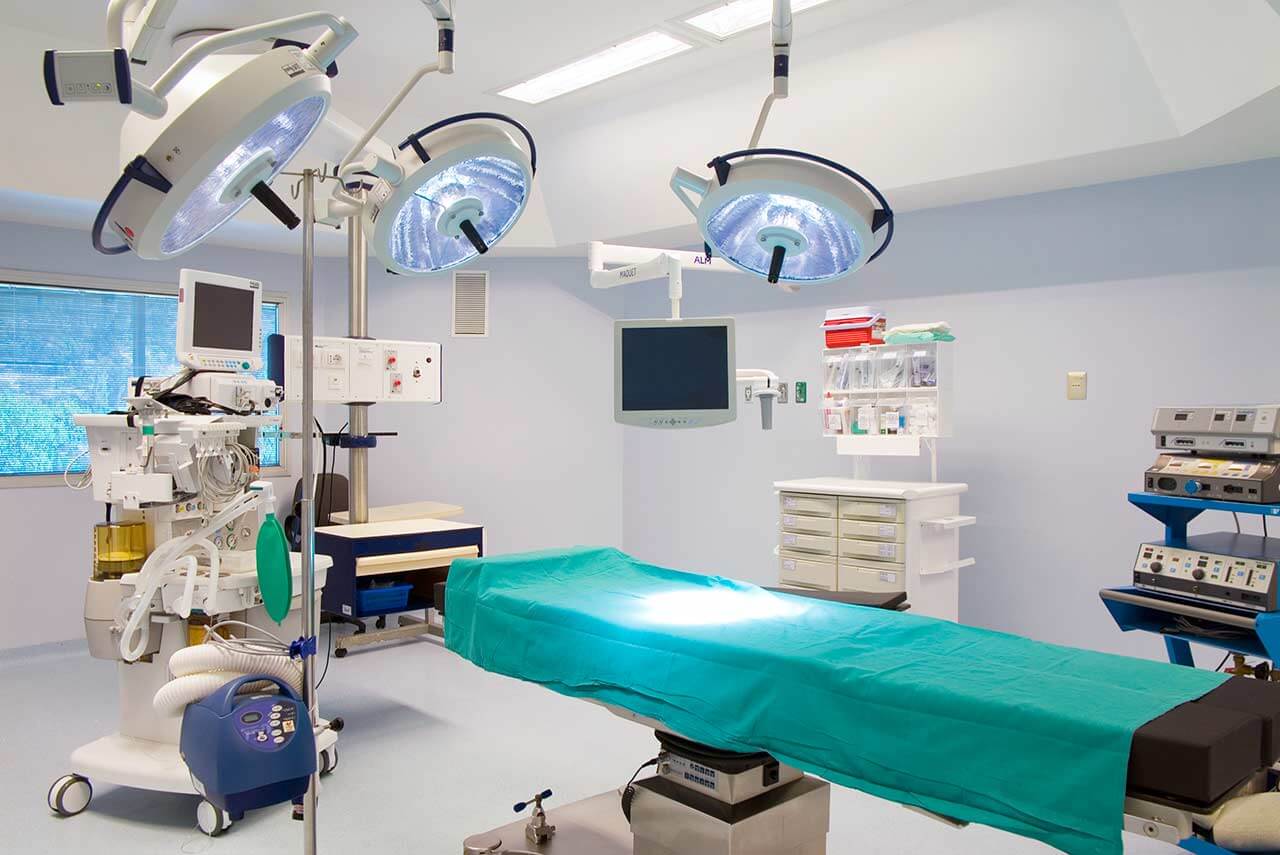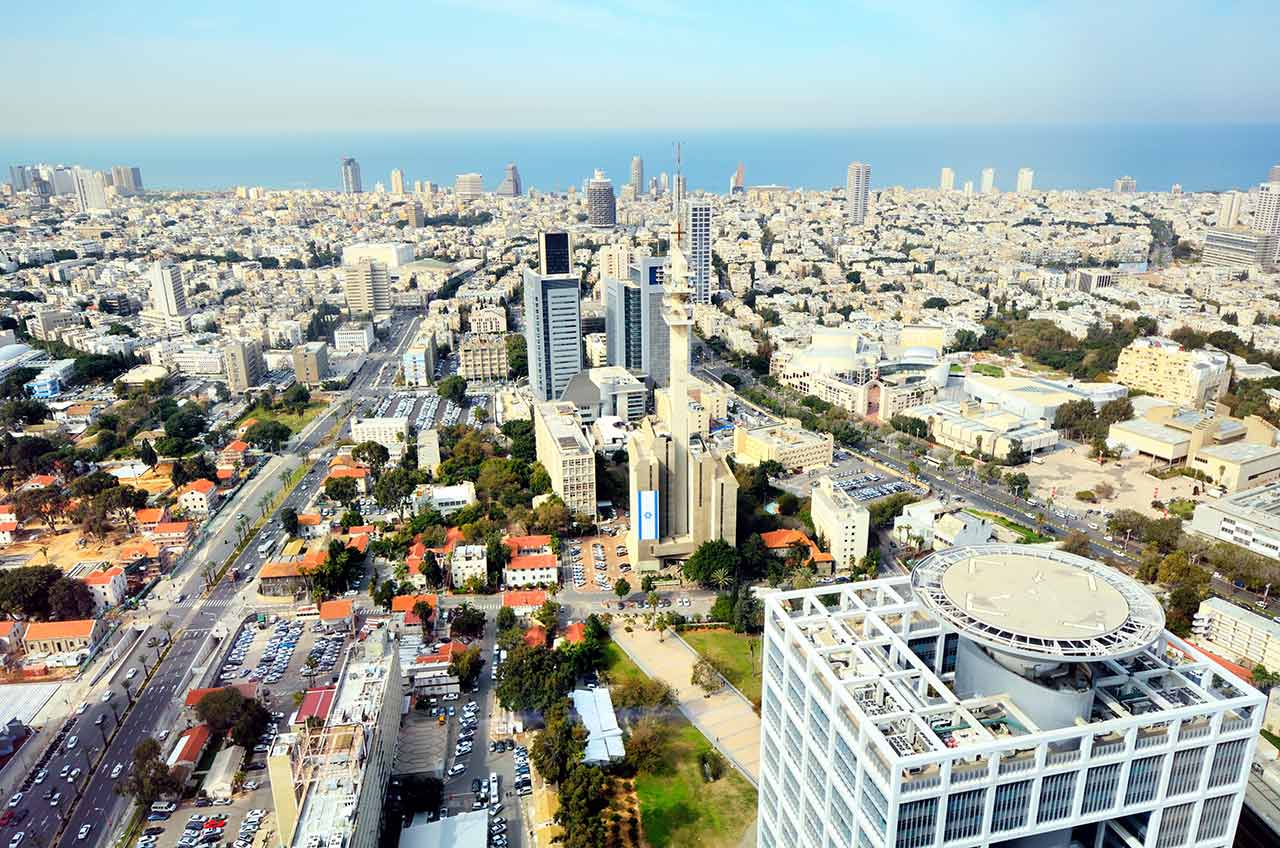
The program includes:
- Initial presentation in the clinic
- clinical history taking
- review of medical records
- physical examination
- laboratory tests:
- complete blood count
- general urine analysis
- biochemical analysis of blood
- TSH-basal, fT3, fT4
- tumor markers
- inflammation indicators (CRP, ESR)
- indicators of blood coagulation
- abdominal ultrasound scan
- CT scan/MRI or PET-CT of abdomen
- preoperative care
- cytoreductive surgery to remove visible tumors
inside the abdomen and HIPEC - histological and immunohistochemical
examination of removed tissues - symptomatic treatment
- cost of essential medicines
- nursing services
- stay in the hospital with a full board
- accommodation in a 2-bedroom ward
- elaboration of further recommendations
How program is carried out
During the first visit, the physician will conduct a clinical examination and go through the results of the available diagnostic tests. After that, you will undergo the necessary additional examination, such as the assessment of liver and kidney function, ultrasound scan and tomography of the abdominal organs. Based on the results of the examination, the physician will choose the surgical technique and the type of anesthesia. After that, preparation according to the preoperative standard will start.
Cytoreductive surgery begins with general anesthesia. The intervention is performed as open surgery, i.e. through the incision in the anterior abdominal wall, so that the surgeon can carefully examine the peritoneum and the surface of the abdominal organs. The surgeon removes affected by the malignant process areas of the colon and peritoneum, metastases in other internal organs. This stage of the operation can take several hours, since the overall effectiveness of the treatment depends on the completeness of the malignant tissues removal.
At the next stage of the operation, the surgeon inserts several catheters into the abdominal cavity. Through the catheters, a heated solution of a chemotherapy drug is pumped inside. The special system maintains the required temperature (42-43 degrees Celsius), pressure and circulation rate of the medicinal solution. The solution mechanically flushes out blood clots and remnants of malignant tissues, and a heated chemotherapy drug destroys micrometastases in internal organs and lymph nodes (micrometastases can’t be detected by the naked eye).
After 1-1.5 hours, the chemotherapy drug is removed from the abdominal cavity and the abdominal cavity is washed with saline. After that, the surgeon removes the catheters and sutures the incision of the anterior abdominal wall.
After the completion of the operation, you will be transferred to the ward of the intensive care unit, under the round-the-clock supervision of doctors and nurses. In 1-3 days after the operation, your drains will be removed and you will be transferred to a regular ward for further recovery. The whole treatment takes 10-12 days on average.
Finally, the attending physician will evaluate the results of control examinations, schedule the date of discharge from the hospital and give you detailed recommendations for further follow-up and treatment.
Required documents
- Medical records
- Esophagogastroduodenoscopy (EGD), MRI/CT scan (not older than 3 months)
- Biopsy results (if available)
Service
You may also book:
 BookingHealth Price from:
BookingHealth Price from:
About the department
The Department of General Surgery at the Tel Aviv Sourasky Medical Center offers the full range of surgical treatment for patients. It performs both planned and emergency surgical interventions. The department is the leading medical facility in Israel, whose surgeons regularly demonstrate outstanding treatment results. The surgical interventions are performed by experienced doctors who were trained in the most famous American Medical Centers. The department's specialists prefer sparing minimally invasive interventions, which significantly shorten the hospitalization period and minimize the risks of complications. The department is headed by Prof. Dr. med. Joseph Klausner.
The department specializes in pancreatic, liver and biliary tract surgery, surgical treatment of soft tissue sarcoma and stomach cancer, cytoreductive surgery and hyperthermic intraperitoneal chemotherapy, surgical treatment of obesity, esophagectomy, advanced laparoscopic surgery and other types of surgical procedures.
The specialists also provide postoperative intensive care, which is an integral part of the patient's recovery. The comprehensive approach, which combines surgical intervention and postoperative care, ensures the best treatment results, which are not inferior to the results of the renowned Surgical Centers in Europe and the United States. The department pays particular attention to an individual approach to the patient and his family, thanks to which the patient and the doctor can establish a confidential contact, which contributes to rapid recovery.
The department's medical team is not only successfully engaged in clinical practice, but also makes a significant contribution to the development of modern surgery. It carries out fruitful research activities. The special research fields include the development and progression of cancer, as well as its metastasis, angiogenesis and lymphangiogenesis (the formation of blood and lymph vessels), epithelial-mesenchymal transition (EMF), diagnostics and treatment of cancer. The department's doctors also have academic ranks, train medical students, as well as train specialists in various disciplines of general surgery.
The department's range of surgical services includes:
- Adrenalectomy
- Hernia repair (in adults)
- Appendectomy
- Chemosurgery
- Diagnostics and treatment of obesity
- Diagnostic laparoscopy
- Whipple procedure, partial/distal pancreatectomy
- Esophageal resection
- Stomach resection (total/distal/proximal)
- Liver resection
- Surgical treatment of hyperhidrosis (excessive sweating)
- Laparoscopic cholecystectomy
- Laparoscopic colectomy
- Laparoscopic gastrectomy
- Laparoscopic treatment of hiatal hernia
- Laparoscopic liver resection
- Laparoscopic nephrectomy followed by transplantation
- Laparoscopic resection of the small intestine
- Lumpectomy/mastectomy
- Rectal resection
- Surgical treatment of retroperitoneal sarcoma
- Splenectomy
- Cytoreduction and hyperthermic intraperitoneal chemotherapy
- Isolated limb perfusion
- Treatment of primary and metastatic melanoma
- Other medical services
Curriculum vitae
Education
- 1968 ‑ 1975 Sackler Faculty of Medicine, Tel Aviv University.
- 1976 Doctoral thesis defense, Tel Aviv University. Subject: "The modern surgical approach to malignant melanoma".
Continuing Education
- 1979 - 1980 Postgraduate course at the Medical School of the Tel Aviv University.
- 1987 - 1988 Postgraduate course on Controversies in Surgery, Harvard Medical School, Boston, USA.
Clinical Experience
- 1975 Intern at the New York University, Bellview Hospital, General Surgery.
- 1975 - 1976 Rotating internship, Tel Aviv Medical Center.
- 1977 - 1982 Resident in the Department of General Surgery, Hadassah Hospital, Tel Aviv.
- 1983 Certification of the Israel Board of Surgery (magna cum laude).
- 1983 - 1986 Fulltime Attending Surgeon, Department of Surgery, Hadassah Hospital, Tel Aviv.
- 1988 - 1989 Senior Surgeon, Department of Surgery, Hadassah Hospital, Tel Aviv.
- 1989 Deputy Director, Department of Surgery, Hadassah Hospital, Tel Aviv.
- 1991 - 1992 Head of the Department of Surgery, Hadassah Hospital, Tel Aviv.
- 1989 Head of the Department of Surgery "B", Tel Aviv Sourasky Medical Center.
- 1994 Head of the Department of Surgery "B" and "C", Tel Aviv Sourasky Medical Center.
- 1996 Chief Physician of the Department of Surgery, Tel Aviv Sourasky Medical Center.
Academic Experience
- 1980 - 1985 In charge of "Resuscitation Program" for military physicians, Military Medical School, Israel Defense Forces. Teaching undergraduates, School of Medicine, Tel Aviv University.
- 1982 Chief Instructor in Resuscitation and Emergency Medicine, Tel Aviv Medical Center.
- 1984 In charge of Teaching Surgery at Tel Aviv School of Nursing.
- 1984 Teaching postgraduates in General Surgery.
- 1986 - 1988 Research Fellow, Harvard Medical School and Peter Bent Brigham Hospital, Boston, Massachusetts, USA.
- 1989 "Trauma Forum", Israel Defense Forces.
- 1989 Committee, Medical Council of the Tel Aviv Medical Center.
- 1989 Helsinki Committee, Medical Council of the Tel Aviv Medical Center.
- 1989 In charge of "Emergency Medicine" training, Sackler Faculty of Medicine.
- 1989 Surgical Advisor, Division of Health, Tel Aviv Municipality.
- 1989 Examiner, National Board of Surgery.
- 1990 In charge of "Morbidity and Mortality" conferences (Surgery), Tel Aviv Sourasky Medical Center.
- 1990 Committee on Basic Research, Israel Medical Council.
- 1990 National Board of Examinations, Israel Medical Council.
- 1990 - 1994 Committee on Advanced Studies and Conferences Abroad, Israel Cancer Association.
- 1991 In charge of Advanced Trauma Management, School of Continuing Education, Sackler Faculty of Medicine, Tel Aviv University.
- 1992 Steering Committee for Board Certification, National Scientific Council.
- 1993 Teaching Committee, School of Continuing Education, Sackler Faculty of Medicine, Tel Aviv University.
- 1993 Steering Committee, Israel Association of Disaster Medicine.
- 1993 Member of the National Ministerial Committee for Oncology, Ministry of Health.
- 1994 Member of the National Ministerial Committee for Surgery, Ministry of Health.
- 1994 Education Committee, Israel Surgical Society.
- 1994 - 1998 Chairman, Committee on Advanced Studies and Conferences Abroad, Israel Cancer Association.
- 1995 Chairman, Board of Surgery, Scientific Council of the Israel Medical Association.
- 1996 Committee for Reorganization of Surgical Clerkship, Sackler Faculty of Medicine, Tel Aviv University.
- 1996 Committee for Reorganization, Scientific Council of the Israel Medical Association.
- 1996 Committee of the Israel Science Foundation.
- 1997 Best Teacher, Sackler School of Medicine.
- 1998 - 2004 Chairman, Israel Society for Surgical Oncology.
- 1998 Committee for Medical Education Planning, Sackler School of Medicine, Tel Aviv University.
- 1998 Committee for Reorganization of Pre-Clinical Teaching, Tel Aviv University.
- 2000 - 2005 Chairman, Israel Surgical Association.
- 2001 Scientific Committee, Center for Biological Research of Cancer.
- 2001 Board Member of the Scientific Council, Israel Medical Association.
- 2004 Chairman, National Scientific Council on Surgery, Anesthesia and Intensive Care, Ministry of Health.
- 2006 Head, Nicholas and Elizabeth Slezak Chair in Experimental Surgery.
- 2007 - 2010 Head of the International Committee and Executive Committee Member, American Society of Surgical Oncology.
- 2017 Chairman of the Meeting of the Israel Surgical Association.
University Appointments
- 1972 - 1975 Assistant Lecturer in Anatomy, Sackler School of Medicine, Tel Aviv University.
- 1985 Lecturer in Surgery, Sackler School of Medicine, Tel Aviv University.
- 1988 Senior Lecturer in Surgery, Sackler School of Medicine, Tel Aviv University.
- 1989 Associate Professor of Surgery, Sackler School of Medicine, Tel Aviv University.
- 1997 Full Professor of Surgery, Sackler School of Medicine, Tel Aviv University.
Prizes and Achievements
- 1981 Israel Cancer Association, Research Grant "Cancer induced fibrinolysis".
- 1985 Travel Grants: 1st International Conference on Malignant Melanoma, Venice, Italy; on Neoadjuvant Chemotherapy, Paris, France.
- 1986 Milvitzky Prize, Israel Surgical Society.
- 1988 Israel Cancer Association, Presentation at the American College of Surgeons Meeting, Chicago, USA.
- 1989 Shauder Memorial Fund, Tel Aviv University; "The role of oxygen radicals in IL 2 induced toxicity".
- 1989 - 1990 Stabarovtzy Memorial Prize for Surgical Research, Sackler School of Medicine, Tel Aviv University (2 awards).
- 1989 - 1991 Israel American Cancer Research Fund, Career Development Award.
- 1989 Israel Cancer Association, Research Grant.
- 1990 Research Prize.
- 1990 Patey Prize Session, Surgical Research Society, Southhampton.
- 1990 NIH Grant in collaboration with Prof. Shepro, Dean of Science, Boston University.
- 1991 Israel Cancer Association, Research Grant.
- 1991 Israel Cancer Association, Medical Equipment Grant.
- 1991 Tel Aviv University, Shrieber Grant for Research.
- 1992 Tel Aviv University, Slezak Fund Grant.
- 1992 Israel Cancer Association, Research Grant.
- 1994 and 1996 Israel Cancer Association, Equipment Grant.
- 1996 Research Grant, Boehringer Ingelheim GmBH, Implementation of TNF.
Memberships in Professional Societies
- 1976 Israel Medical Association.
- 1984 Israel Surgical Society.
- 1985 World Association of Emergency and Disaster Medicine.
- 1985 European Society of Surgical Oncology.
- 1986 Harvard Medical Association (USA).
- 1993 Israel Association for Disaster Medicine.
- 1993 International Society for Regional Cancer Therapy.
- 1995 Israel Trauma Society.
- 1997 Society of Surgical Oncology (USA).
- 1999 Fellow of the American College of Surgeons (USA).
- 2007 Chairman of the International Committee of the American Society of Surgical Oncology.
Photo of the doctor: (c) Tel Aviv Sourasky Medical Center
About hospital
The Tel Aviv Sourasky Medical Center is the second largest and one of the most advanced healthcare and research facilities in Israel. It began its work in 1961, but it is still popular among the local population and attracts thousands of international patients.
The multidisciplinary medical center covers an area of 150,000 m². It has 60 departments and institutes with 1300 beds. The hospital annually provides its highly professional services to more than 1,5 million patients. In addition, the hospital enjoys prestige among doctors, many of whom want to have an internship and work here.
The medical center employs more than 6,400 people, among them more than 1,100 doctors, 1,760 nurses, 850 medical laboratory assistants, technical and other employees. The medical staff successfully combines clinical and research activities. The hospital annually conducts clinical trials aimed at the the development of new diagnostic and treatment methods.
Structurally, the medical facility is divided into four main hospitals. These include the General Hospital, the Rehabilitation Hospital, the Lis Maternity and Women's Hospital and the Dana-Dwek Children's Hospital.
The medical center is focused on individualized treatment. With adherence to the international standards of service, the specialists take into account the needs of each patient, his age and a specific clinical case. The medical center strives to provide treatment in a friendly and respectful atmosphere, with an empathic attitude to each patient.
Photo: (c) depositphotos
Accommodation in hospital
Patients rooms
The patients of the Tel Aviv Sourasky Medical Center live in comfortable rooms equipped with all necessary amenities. The standard room includes an automatically adjustable bed, a bedside table, a wardrobe for storing clothes. Also, each room has an ensuite bathroom with shower and toilet.
Meals and Menus
The medical center offers three meals a day: breakfast, lunch and dinner. For lunch, the patients have a choice of daily menus. If for some reason you do not eat all foods, you will be offered an individual menu. Please inform the medical staff about your food preferences prior to treatment.





